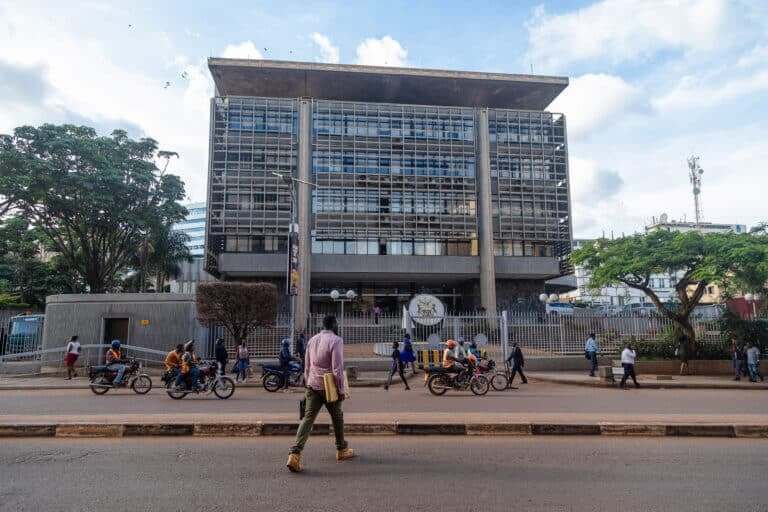The Bank of Uganda, Uganda’s apex bank, has announced its retention of 9.75% as the key lending rate for the second Monetary Policy Committee (MPC) meeting in a row. However, the uncertainty of U.S. policies may result in tighter monetary policy measures in the future. This was announced during a news conference on Thursday, 6th February 2025.
According to Reuters, the decision to maintain the current lending rate was influenced by the global inflation outlook. “Uncertainties from global developments could cause inflation to rise faster and disrupt economic activity. This situation necessitates a cautious approach to monetary policy,” Deputy Governor Michael Atingi-Ego said.
Atingi-Ego, however, predicted that the US trade policies and tariffs on economy-partner countries such as China may result in global inflation, which may affect Uganda’s inflation rate, causing an increase in the prices of goods.
“Uganda, of course, is not an island. We will end up importing some of that inflation,” he said. “That means we will have to see how to tighten monetary policy going forward.”
He, however, maintained that the Ugandan inflation rate was well contained and within the 5% inflation prediction. Annual core inflation rose to 4.2% in January, up from 3.9% in December 2024. Headline inflation also increased to 3.6% in January 2025 from 3.3% in December 2024.
The inflation was mainly driven by an increase in services inflation, particularly transport services.
Average core inflation for 2025 was predicted to be between 4.0% and 5.0%, and could be affected by geopolitical conflicts, extreme weather conditions, the strength of the US dollar compared to the Ugandan shilling
Alongside the lending rate, Atingi-Ego noted that the apex bank also retained its economic growth outlook from its December MPC meeting.
The country’s economic growth is projected at 6%-6.5% between January 2024 and June 2025, and 7% for the following years, anchored by a stable macroeconomic environment and foreign direct investment (FDI) towards the extractive industries.






